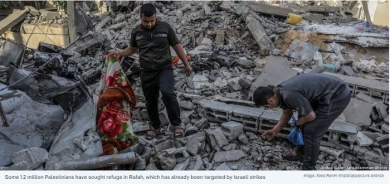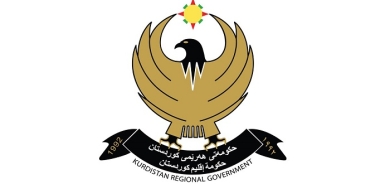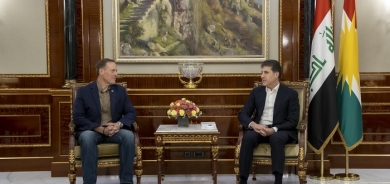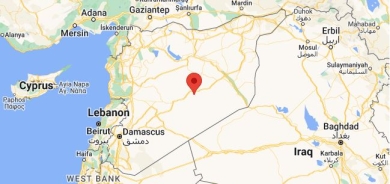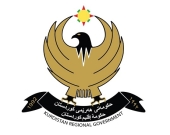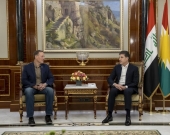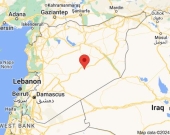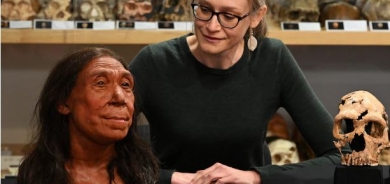Conciliatory tones in Egypt as envoys seek to avert bloodbath
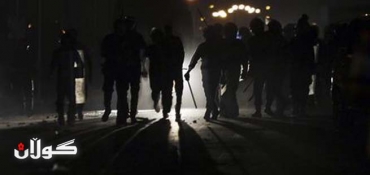
Egypt's army-backed rulers and allies of its deposed Islamist president gave the first signs on Saturday of a readiness to compromise, pressed by Western envoys trying to head off more bloodshed.
Faced with the threat of a crackdown on supporters of the Muslim Brotherhood, diplomacy appeared to pick up pace, a month to the day since Egypt's army deposed President Mohamed Mursi and plunged the country into turmoil.
Recognizing for the first time the strength of popular protest against his one-year rule, Mursi's allies said on Saturday they respected the demands of millions who took to the streets before his overthrow.
A spokesman said the Mursi camp, which has refused to abandon weeks of sit-in protests until he is reinstated, wanted a solution that would "respect all popular desires".
They told envoys from the United States and the European Union that they reject any role in a political settlement for army chief General Abdel Fattah al-Sisi, who led Mursi's ouster, and want the constitution he suspended to be restored.
"I respect and hold in regard the demands of the masses that went out on June 30, but I will not build on the military coup," spokesman Tarek El-Malt told Reuters, relaying what the pro-Mursi delegation had told the envoys.
Asked whether the delegation had insisted on Mursi's reinstatement as part of any political deal, Malt, a member of the Brotherhood-affiliated Wasat party, said that was a detail for future discussion.
But given that Mursi's opponents insist he should not be part of the political solution, Malt said then that "Sisi must also not be in the political equation".
In an interview with the Washington Post, Sisi appeared to rule out running for president himself, despite his growing popularity among some of the 84 million-strong population.
"You just can't believe that there are people who don't aspire for authority," Sisi told the interviewer when asked if he would stand for president. Asked "Is that you?", he replied: "Yes." The Post said the interview was conducted on Thursday.
"SAFE EXIT"
Egypt's military has installed a transitional government and laid out a "road map" to elections in about six months. It promises a return to civilian government, having brought down the first freely elected president after 60 years of rule by military men.
The Brotherhood, an Islamist movement that spent decades in the shadows before winning power in elections after the 2011 fall of autocrat Hosni Mubarak, had spurned the road map.
But its supporters, camped out at two sites in Cairo, face the threat of being violently dispersed by security forces who shot dead 80 of them a week ago. Almost 300 people have been killed in political violence since Mursi's overthrow, and much of the movement's leadership is in custody.
The deposed president is being held in a secret location, under investigation on a raft of charges including murder.
Diplomats say the West is pressing the Brotherhood to give up on Mursi's return, and for the military to pull back from a bid to drive the Islamists back underground.
Analysts say civilians in the new government are trying to promote a political solution despite resistance from security services that want to take a hard line on the Brotherhood.
Sisi said millions had responded to his call for a "mandate" to quell the violence, filling central Cairo on July 26.
"These people are waiting for me to do something," he told the Post, noting though that the task of dealing with the Brotherhood sit-ins fell to the police.
He said the Brotherhood's ideology was not one of patriotism or nationalism but was "based on restoring the Islamic religious empire."
The government said on Friday it would blockade the camps, but not storm them. On Saturday the Interior Ministry offered protesters a "safe exit".
"CONTACTS" WITH BROTHERHOOD
"Your continued sit-ins have no legal or political use," Interior Ministry spokesman General Hany Abdel Latif said on Egyptian television. "You have a safe exit, you will be politically integrated."
Latif, addressing Mursi's supporters, told them they had been "brainwashed" and used as "a political bargaining chip."
U.S. Deputy Secretary of State William Burns and European Union envoy Bernadino Leon were leading the diplomatic push, meeting Mursi's allies, interim Foreign minister Nabil Fahmy and interim President Adli Mansour.
A Foreign Ministry statement said the government was committed to national reconciliation, including all political forces "as long as they refrain from all forms of violence and incitement to it".
Fahmy told reporters after the meeting that there had been some contact with the Brotherhood.
"I wouldn't use the word negotiation. There have been contacts between different figures. There is no desire to use force if there is any other avenue that has any potential for success," he said.
The crisis in the Arab world's most populous country has posed a dilemma for the United States and other Western governments, which had advocated democracy following the overthrow of Mubarak but grew increasingly uncomfortable with Mursi's Islamist leanings.
Many Egyptians shared that concern, and frustration grew over Mursi's failure to solve social and economic problems.
The interim government gained the United States' approval on Thursday when Secretary of State John Kerry said the army had been "restoring democracy" when it toppled Mursi.
Under Mubarak, Egypt was a bulwark of U.S. policy in the Middle East, not least because of its peace agreement with Israel. Mursi's overthrow had jeopardized the $1.3 billion annual military aid Egypt receives from Washington.
(Additional reporting by Michael Georgy and Tom Finn in Cairo, Phil Stewart in Washington; Writing by Angus MacSwan and Matt Robinson; Editing by Robin Pomeroy)
By Tom Perry and Matt Robinson

